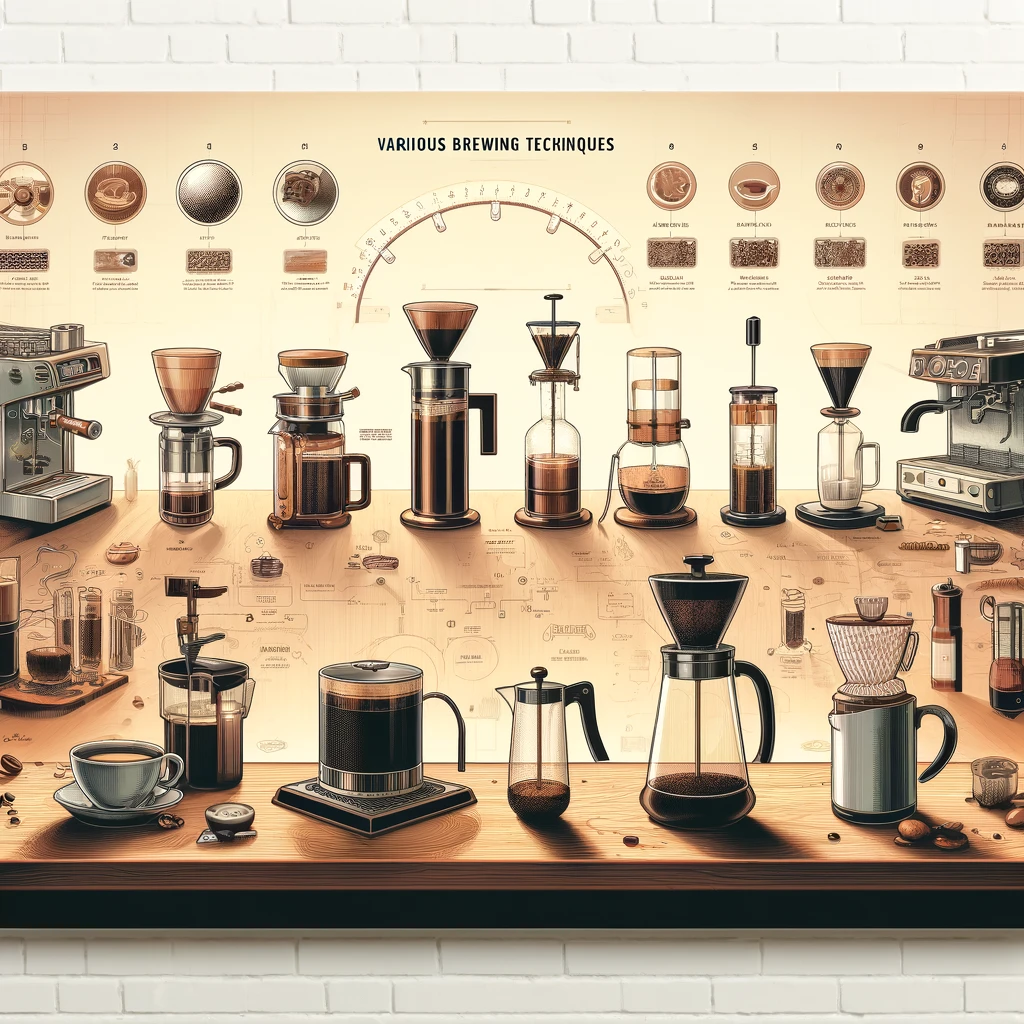
Morning Coffee: Enhancing Your Daily Routine | wellhealthorganic.com : morning coffee tips with no side effect
Morning Coffee: a ritual that marks the beginning of many people’s day. Delving into this theme not only embraces the joy and sensory pleasure coffee brings but also explores how we can enhance this daily practice to benefit our overall well-being. In this section, we will unravel the various facets of coffee ranging from brewing techniques to its health benefits, aiming to transform your morning routine into an enriching experience.
Introduction to Coffee and Wellness
The intersection of coffee and wellness begins with understanding how this popular beverage can influence both our physical and mental health. Coffee is more than just a source of caffeine; it is imbued with numerous compounds that contribute to its taste and health properties. This subsection will explore how integrating coffee into your morning routine can promote a heightened sense of well-being and alertness, setting a positive tone for the day ahead.
Best Practices for Brewing Coffee
To extract the maximum benefit from your morning cup, it’s crucial to follow the best practices for brewing coffee. This includes choosing the right quality of beans, understanding the importance of water quality and temperature, and mastering various brewing methods to suit your taste preferences. This section will guide you through these essential steps, ensuring that each cup of coffee is as delicious as it is beneficial for your health.
Health Benefits of Coffee / morning coffee tips with no side effect
Coffee is more than just a morning ritual for many people; it’s a rich source of antioxidants and offers a range of health benefits that can contribute to overall wellness. Regular coffee consumption has been associated with a lower risk of several serious diseases, including type 2 diabetes, Parkinson’s disease, and certain types of cancer. This section explores the various health benefits that coffee can offer, emphasizing the positive impacts it has on long-term health when consumed in moderation.
Nutritional Aspects of Coffee
Coffee is a low-calorie beverage when enjoyed without added sugars or creams. It contains essential nutrients such as riboflavin (vitamin B2), niacin (vitamin B3), magnesium, and potassium. Each cup of coffee can contribute significantly to your daily intake of these nutrients, supporting overall cellular health and metabolism. Moreover, the presence of these nutrients helps in enhancing various bodily functions, including neurological activities and metabolic processes.
Coffee and Its Antioxidant Properties
One of the most significant health benefits of coffee is its high level of antioxidants. Coffee is one of the largest sources of antioxidants in the Western diet, outranking many fruits and vegetables. These antioxidants, such as chlorogenic acids and caffeic acid, help neutralize free radicals, reducing oxidative stress and preventing damage to cells. Regular intake of coffee can contribute to better heart health, and its antioxidant properties may also reduce the risk of chronic diseases related to oxidative stress, such as cardiovascular diseases and certain cancers.
How to Choose the Right Coffee Beans

Choosing the right coffee beans is crucial for anyone looking to enhance their coffee experience. The selection process can significantly affect the aroma, flavor, and overall quality of your coffee. Whether you’re a casual drinker or a connoisseur, understanding the different variables that influence coffee bean quality will help you make a more informed choice. This section will explore the essential factors to consider when selecting coffee beans and the differences between organic and conventional types.
Factors Affecting Coffee Bean Choice
When selecting coffee beans, several key factors need to be considered to ensure the best quality and flavor suited to your taste. Origin plays a crucial role; beans from different regions, like Africa, South America, or Asia, offer distinct flavor profiles ranging from fruity to nutty or even floral notes. The altitude at which coffee is grown also affects the beans’ acidity and flavor complexity. Additionally, the roast type is significant; light, medium, and dark roasts each bring out unique aspects of the coffee, influencing aroma, body, and taste. Finally, the freshness of beans is imperative—always look for beans that have been roasted recently to capture the fullest flavor profile.
Organic vs. Conventional Coffee Beans
The debate between organic and conventional coffee beans is significant for health-conscious consumers and environmental advocates. Organic coffee is grown without synthetic pesticides or fertilizers, which not only helps preserve local ecosystems but often results in cleaner, more robust flavors, appealing to those who seek a pure coffee experience. On the other hand, conventional coffee beans tend to be less expensive and more readily available. However, they might contain residues from chemical pesticides and fertilizers used during cultivation, which can concern those mindful of health and environmental impacts. Ultimately, the choice between organic and conventional depends on personal priorities related to health, taste, and ecological impact.
Various Brewing Techniques

In the quest to master the art of coffee making, understanding the various brewing techniques is essential. Each method not only alters the flavor profile but also affects the overall sensory experience of your coffee. From the robust intensity of an espresso to the gentle extraction of a French press, each technique caters to different palates and preferences. This section delves into popular methods such as Espresso, French Press, and Pour Over, examining how they enhance the coffee’s natural aromas and flavors.
Espresso, French Press, and Pour Over Methods
The Espresso method, known for its quick extraction, produces a rich and concentrated coffee that serves as the base for many other drinks. On the other hand, the French Press offers a more tactile brewing experience, allowing for a full extraction of coffee oils, which results in a richer and fuller body. The Pour Over method is ideal for highlighting subtle differences between single-origin beans, offering clarity and complexity in the cup. Each method requires specific grind sizes and techniques to achieve the best result, reflecting the intricate nature of coffee brewing.
Cold Brew vs. Hot Brew: What’s Better for Health?
When it comes to health, the debate between Cold Brew and Hot Brew coffee continues. Cold brew, known for its smooth and sweet profile, is often less acidic, which can be easier on the digestive system and beneficial for those with acid reflux issues. On the other hand, hot brewed coffee typically retains more of the antioxidants found in coffee beans, potentially offering greater health benefits such as improved heart health and decreased inflammation. This subsection compares these brewing methods not only in terms of taste but also in terms of their health implications, helping you choose the best brewing method tailored to your health needs.
Avoiding Negative Side Effects of Coffee

While coffee is celebrated for its invigorating effects and health benefits, it’s crucial to address its potential negative side effects. The main goal is to enjoy coffee in a way that enhances wellness without adversely affecting your health. This section focuses on practices and ingredients that can help mitigate the less desirable effects of regular coffee consumption, such as sleep disturbances, stomach upset, and increased heart rate. Understanding these aspects can lead to a more enjoyable and healthy coffee experience.
Managing Caffeine Intake
Managing caffeine intake is essential to avoiding the negative impacts that can arise from excessive consumption, such as jitteriness, anxiety, and sleep disturbances. It’s recommended to monitor how much caffeine is consumed daily and to aim not to exceed 400 mg, which is roughly the amount in four average cups of coffee. Consideration of one’s personal tolerance to caffeine is crucial, as sensitivity can vary greatly among individuals. Implementing practices such as switching to decaf in the afternoon and measuring coffee accurately can significantly aid in managing caffeine levels effectively.
Alternative Ingredients to Minimize Acidity
To combat the acidity often associated with coffee, which can lead to stomach discomfort and acid reflux, incorporating alternative ingredients can be beneficial. Using a low-acid coffee bean is an excellent start; these are often specially treated during production to reduce acid levels. Additionally, experimenting with non-dairy milk alternatives such as almond or oat milk, which are naturally less acidic than traditional cow’s milk, can help neutralize coffee’s acidity. Another option is to add a pinch of baking soda to the coffee grounds before brewing, which neutralizes the acid without affecting the flavor.
Enhancing Coffee Flavor Without Sugar
The quest for a richer coffee experience often leads to the addition of sugar, but many are seeking healthier alternatives without compromising on taste. Utilizing natural sweeteners and a variety of spices can profoundly enhance the flavor of coffee while aligning with dietary goals. This section discusses unique methods to excite your palate and enrich your coffee moments without the caloric burden of traditional sugar.
Natural Sweeteners and Spices That Complement Coffee
Exploring natural sweeteners such as honey, stevia, or maple syrup can offer unique flavor profiles and a reduction in processed sugar intake. Additionally, integrating spices like cinnamon, nutmeg, or cardamom not only boosts the coffee’s flavor but also provides various health benefits. These spices can reduce inflammation, aid digestion, and add a comforting aroma that transforms your simple coffee into a special brew. Experimenting with these alternatives can personalize and elevate your coffee experience, making it healthier and more enjoyable.
Healthier Creamer Alternatives
For those who enjoy creamier textures in their coffee, conventional creamers can be substituted with healthier alternatives that add flavor without excessive calories or unhealthy fats. Options such as almond milk, oat milk, or coconut cream provide a silky consistency and a subtle sweetness, enhancing the coffee without overshadowing its natural robustness. These alternatives are not only lower in calories but also richer in nutrients compared to traditional creamers. Whether you prefer a hint of vanilla or a touch of cocoa, these versatile additions cater to both your health and taste buds.
The Best Time to Drink Coffee

Understanding the optimal timing for coffee consumption can significantly enhance its benefits and minimize potential drawbacks. Timing your coffee intake can affect not only your energy levels but also your sleep quality and overall health. In this section, we will explore how the circadian rhythm interacts with coffee and discuss the best timings for pre and post-workout coffee consumption.
Coffee and Circadian Rhythm
Our body’s circadian rhythm, or internal clock, regulates the sleep-wake cycle and influences various physiological processes, including hormone release and metabolism. Consuming coffee at times that align with this rhythm can maximize alertness and productivity. Typically, the best times to drink coffee are between 9:30 AM and 11:30 AM, when your cortisol levels naturally dip, and between 1:30 PM and 5:00 PM to overcome the afternoon slump. It’s advisable to avoid coffee a few hours before bedtime, as caffeine can disrupt the natural production of melatonin, impacting sleep quality.
Pre and Post Workout Coffee Consumption
Integrating coffee into your workout routine can provide an energy boost and enhance athletic performance, particularly in endurance sports. Consuming a small to moderate amount of coffee about a half-hour before exercising can increase fatty acid availability in the bloodstream, which aids endurance. After workouts, coffee can also be beneficial, but it should be balanced with adequate hydration and possibly some protein intake to aid recovery. Overall, the timing and quantity of coffee need careful consideration to optimize both performance and recovery in athletic endeavors.
Sustainable Coffee Consumption Practices
Sustainable coffee consumption involves adopting practices that not only enhance the flavor and experience of enjoying coffee but also ensure that its production supports the health of ecosystems and communities involved in its cultivation and distribution. This section explores key considerations and methods that coffee enthusiasts and consumers can adopt to promote sustainability within the global coffee industry.
Impact of Coffee Production on Environment
Coffee production can have significant environmental impacts, including deforestation, water pollution, and loss of biodiversity. The conventional methods of coffee farming often involve clearing large areas of forest, which contributes to habitat destruction and increases carbon emissions. Furthermore, the use of synthetic fertilizers and pesticides in traditional coffee farming can lead to soil degradation and water contamination. Acknowledging these challenges is the first step toward advocating for practices that favor environmentally friendly coffee farming techniques such as shade-grown coffee, which supports forest conservation and biodiversity.
How to Support Sustainable Coffee Farming
To support sustainable coffee farming, consumers can start by choosing coffee that is certified by organizations like Fair Trade, Rainforest Alliance, or Organic. These certifications ensure that the coffee is grown using methods that have a minimal environmental impact and support fair compensation for farmers. Additionally, supporting local coffee roasters who source beans directly from sustainable farms can help reduce the carbon footprint associated with long-distance coffee transportation. Engaging in dialogue with local coffee shops and encouraging them to prioritize sustainability in their sourcing can also have a positive impact.
